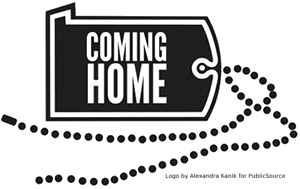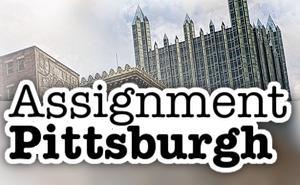In early May, a U.S. judge struck down several provisions of Pennsylvania’s 60-year-old law that governs the funeral home profession. Some in the industry are applauding the judge’s decision, while others are fighting to keep the law as-is.
The saga started about four years ago, when a group of 30 funeral home directors sued over provisions in state law they claimed were unconstitutional. U.S. District Judge John Jones agreed on 11 of the counts, calling the provisions outdated and the board itself moribund. Ernie Heffner is President of Heffner Funeral Chapels and Crematory in York, and lead plaintiff. He said it’s about time the commonwealth caught up to the rest of the country.
“Pennsylvania is so far behind it’s almost laughable … on a national basis the restrictions in Pennsylvania are laughed at,” he said.
The struck-down provisions pertain to things such as serving food at funeral homes, timing of state inspections, and licensure, but not everybody feels the law is outdated. Rose Carfagna Au is president of the Allegheny County Funeral Directors Association. She said the law was first enacted in the 1950s and has mostly been effective in governing the funeral profession.
“Realizing the law has been around for that length of time, I think for a good percentage of funeral homes throughout our state it has worked and has continued to work, so the old idea is, ‘If it’s not broke, don’t fix it,’ you know? Can there be portions of the rule itself that might need to be tweaked a little? Absolutely,” she said.
Among the provisions struck down by the judge is one that requires a funeral home to be owned by a licensed funeral director. Au worries what doing away with that requirement would mean. “Everything I’ve worked for for the last 32 years and the training I’ve received as far as through school and things like that, it’s almost like it’s wiping out my license, you know?” Au said. “Now, all of a sudden, I don’t even need a license. The three major things that are important to remember in what the funeral law states is that there should be number one accountability, consumer protection, and then, of course, licensure.”
Those working to strike down these provisions disagree.
“There is no licensing to be a funeral director or to be a funeral home in the state of Colorado. Somehow consumers seem to be served,” said Ernie Heffner.
The Pennsylvania Funeral Directors Association, which represents 1,100 funeral directors and opposes the changes, said doing away with license requirements, along with striking down a provision that caps the number of funeral homes someone can own, could hurt smaller funeral homes. The worry is that large corporations will drive smaller businesses out, much like has been seen among small pharmacies, optometrists, and others across the U.S.
“These are basically small mom and pop funeral homes throughout the state. The average funeral director in this state is doing 75-80 funerals a year. They are not big business. These are the people that are active in their communities, in Rotary, Kiwanis and those areas, support the local ball clubs. They are definitely ingrained in their local communities,” said John Eirkson, executive director of the PFDA.
The judge’s decision would also do away with unannounced inspections of funeral homes. Harry Neel of Jefferson Memorial Funeral Home in Pleasant Hills said the state was allowed, under the funeral home law, to show up at a business at any time to conduct an inspection, which, he said, violates the 4th amendment of the U.S. Constitution, which guards against unreasonable search and seizure.
“The board takes the position that everyone is a criminal, and I take the position that, no, I don’t clean my preparation room because you’re going to show up, I clean it because it needs to be cleaned. I don’t do what is the right thing to do because you’re going to show up, and this is the position they take: they think we’re all criminals and if they show up unannounced they’re going to catch us,” he said.
Rose Au, who runs the Ralph Schugar Chapel in Shadyside, takes a different view of the inspections. She said she has no problem with the current provision. “If you have nothing to hide in your business, you shouldn’t worry about an inspector coming in to inspect your funeral home whether he’s announced or unannounced,” she said, “and if you are in violation of those inspections then you should be remanded properly to fix those items.”
If the judge’s ruling holds, funeral homes would be allowed to offer and serve food in their establishments. Pennsylvania is one of only five states where that is prohibited. It would also change the way pre-need sales revenues are handled and who can sell pre-need products. Currently, only a licensed funeral director can handle the sales, and 100% of the money must go into escrow. The new rules would allow 70% of the funds to go into the account with 30% available for the funeral home’s use immediately.
It’s unclear how these provisions would impact the funeral profession in the state. Harry Neel said that will be up to individual businesses. “None of them are going to affect how a funeral home has to do business,” he said. “There’s nothing that forces anyone to do anything. It didn’t strike down the entire funeral law, it only struck down selected portions of it that were antiquated and unconstitutional. The remainder of the law is in effect. There is still plenty of government supervision of funeral service in Pennsylvania.”
Rose Au said it’s all about context.
“The law has been around since 1952. That’s a long time. You’ve gotta understand that there are probably close to 1,200 funeral homes in Pennsylvania, and you’ve got just a handful of funeral directors, as part of their funeral homes, who are wanting to make changes, and maybe there’s certain things that could be tweaked, but it’s not necessarily as has been stated, ‘unconstitutional.’ It has nothing to do with the constitution,” said Au.
The Pennsylvania Board of Funeral Directors wouldn’t comment on ongoing litigation, but has been urged by the state Funeral Directors Association to appeal the judge’s decision. The board has until August 8th to do so, or to make changes to the funeral home law.






